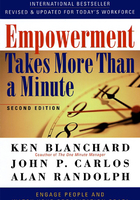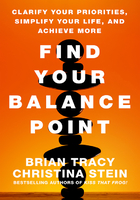THE ELEPHANT
It was six men of Indostan
To learning much inclined,
Who went to see the Elephant
(Though all of them were blind),
That each by observation
Might satisfy his mind.
—From "The Blind Men and the
Elephant," by John Godfrey Saxe
AN ELEPHANT WE CANNOT SEE
Each project engagement reminds me again of these blind men around an elephant. Each blind man discovers a piece of an overall ungraspable whole. From within each individual's personal experience, it seems only reasonable to conclude that everyone else arrayed around the beast experiences this animal as he does, that his personal experience reasonably mirrors every other's, but it most certainly does not. When each blind man can integrate with his own perspective every other blind man's curious testimony, a collective coherence emerges along with the elephant. This coherence creates remarkable possibilities, as if the blind men could actually see through each other's eyes. When they cannot integrate their stories, as John Godfrey Saxe reminds us, their projects degrade into the incoherence of "theologic wars," where each combatant endlessly argues against every other combatant's religiously held opinion. Such deeply held differences of opinion cannot be logically resolved. These wars are won only by those refusing to engage in battle.
Such battles didn't always bore me as they do today. When I ferociously argued that my meanings should dominate on my projects, my clever arguments seemed certain to settle something. Instead, my impassioned opinions at best narrowed necessary diversity, resonating only the perspective of one refusing to acknowledge his own blindness. Those engaging as I did never notice that winning these arguments loses the wars.
My pivotal moment came as I caught myself being myself. After years of believing that I was my projects' meaning-maker, I quite by accident experienced what it was like for those working for me. My delusion collapsed as I caught myself insisting that others' experiences were wrong so that I could maintain my own narrow toehold on reality. Those holding opposing perspectives, whom I'd pushed out in favor of my "superior perspective," didn't return when I needed them. I was in this moment of extremity left with only my irrelevant elephant part while "my" team abandoned me and my so-called leadership.
What is coherence, this magical property, this elephant we cannot see? Leadership in this blind-men-and-elephant world requires integrating disparate perspectives, not enforcing a dominant one. Our projects are poorly served by the belief, religiously defended, that leaders create meaning for their team, because they can at best only encourage some preconditions that might provoke an emerging coherence of shared meaning; acknowledging their own, personal blindness is the most prominent among these. The ability of the many blind men arrayed around the elephant to integrate their personal meanings into a shared experience really creates coherence. Acknowledged blind men create such coherence. If they believed they could see, what would possibly encourage them to work so meaningfully together?
How might we make our project work delight each other? Our hierarchies smother understanding. Our work breakdowns simply break down. Dominion doesn't listen. Compromise can't comprehend. Coherence has never been the sole property of any leader. The coherence we crave, this elephant our projects so desperately require, has always been within the grasp of everyone on every project. Like the image of the elephant, coherence emerges easily from within some frames of reference and suffocates in others. Like the blind men in Saxe's poem, we can always destroy our own possibilities for coherence by insisting that we know all about this elephant that not one of us will ever see. Unlike Saxe's blind men, we can create coherence by losing some of our unwarranted certainty.
MASTERS AND SLAVES
February 2, 2002, 10 a.m.
Lower Manhattan, New York
The whole commerce between master and slave is a perpetual exercise of the most boisterous passions, the most unremitting despotism on the one part, and degrading submission on the other.
—Thomas Jefferson
We have arranged the training-room tables into four rectangles— each with five chairs, two on two sides and one on the end—facing the front of the room. In the back and on the north side, windows overlook the street, where, interspersed with detoured taxis, buses, and cars, a constant stream of trucks carry debris from the remains of the nearby World Trade Center. The background traffic noise leaves us straining to hear each other.
A project management workshop started an hour before, and progress has already slowed. The walls are papered with half-completed lists of difficulties, and these glower down like gargoyles over twenty pairs of slackening shoulders as the reality of our project work lives settles over us. A darkening drizzle of rain starts outside, and the room feels uncomfortably warm. Time crawls.
We are considering difficulties, when one student stands, looks at those sitting around a table across the room, and with a gleam in his eye declares, "The problem with you is that you do not properly appreciate the Master-Slave relationship."
No one shows any sign of surprise, shock, or indignation. A moment of silence introduces a twittering instead, as if he has expressed a universally recognized but unspeakable truth.
His comment was a joke, of course. But like all excellent humor, it contained a painfully large portion of truth.
Consider the working relationships on your projects today. One customer confided that when she first started working at her company, her mentor suggested, "If anything goes seriously wrong, just blame the project." Projects and their constituencies have always had complicated relationships. Ask about these complications and you'll find no disagreement between any constituency's description of the tangles. Everyone knows the open secret—their customers hold them in considerable contempt. We unconsciously re-create Jefferson's famous insight, a summary of which still looks down on visitors to his memorial in Washington, D.C.: "Commerce between master and slave is despotism."
Few properly appreciate this Master-Slave relationship.
We hold these truths to be self-evident and immutable: Someone's supposed to be responsible for telling someone else what to do; others are responsible for taking orders. The Masters and the Slaves seem to select themselves for their roles without considering the terrible consequences of their innocent choices. One becomes the despot, while another becomes that person's Slave. Does project work have to be organized this way?
FRAGMENTING ALONG
PREDICTABLE LINES
One director-level project manager tells the story of her first visit to her project's unheated customer site on a cold winter Saturday. When she arrived clad in boots and a heavy coat to begin work, which involved some complicated system testing, her customer counterpart informed her, "Project people are not allowed to use customer chairs."
Thinking this was a joke, she took a seat, knowing that executing six hours' worth of exacting tests would only be complicated by completing the work while standing, but this requirement was no joke. She stood for six hours, shivering while testing on an unheated shop floor.
The customer often plays the role of despot to his project's Slave. On a first client visit, I chatted in an elevator with three people heading to their project sponsor's status meeting. They confided that they were going to actively withhold critical project information during the meeting. Why deceive? Disclosing their project's real situation would have just encouraged their sponsor's smothering involvement. The project folks knew that if they didn't shave the truth, they couldn't succeed. More important, they knew that if they didn't withhold some facts, their customer couldn't succeed, either.
Such pressures to succeed create overly responsible Slaves and irresponsible Masters. Every Slave sometimes subverts his Master's orders, not simply so he can survive as a Slave, but so his Master can come close to achieving her objectives. The alternatives all look worse. Failing to deliver brings the Master's punishment. Fully disclosing problems implies the Slave's incompetence in every reported complication. Full disclosure invites the Master's disruptive intrusion or destructive punishment, neither of which improves anyone's possibilities for success.
Every Master knows the feeling of having herself cast as a Slave by her customers, too. Each customer, in turn, encourages a Slave-like relationship on his downstream providers, rendering each a Slave unable to say no and unwittingly leaving each therefore also unable to offer a responsible yes. Whenever no becomes unspeakable, every remaining yes becomes worthless. This dynamic recreates a tragedy as each "Master" insists upon satisfaction from her "Slaves" without regard to the effects on other constituencies. When each Slave becomes responsible for delivering to impossibly irrational demands, each in turn finds his own opportunities to assume the role of Master-for-a-moment, passing these insidious expectations throughout his projects. Since real-world results must eventually resolve this irrationality into something tangible, this downwardly passed buck inevitably stops in the lap of the Slave lowest in the pecking order, who must resolve his orders, no matter how irrational, into some working result. Or not.
Resolving this absurd chain becomes unendingly contentious, punctuated with derisive whisperings or outright uprisings as each constituency complains of his own powerlessness in the face of his Master's unending despotism. Inject a reward system that either randomly favors or encourages personal contribution over collective effort, and it's a wonder that anyone ever accomplishes anything with anyone else. Furthermore, many organizations operate under a "Chinese Wall" ethic, dictating that information be shared only on a presumed-need-to-know basis, framing full disclosure as a bad thing. All of these contextual conditions work very effectively to undermine most possibilities for meaningful improvement. More significantly, they create a climate in which failure can be reasonably assumed from the outset.
Organizations operating under such pressures fragment along predictable lines. Where despotism prevails,
"Us" and "them" crowd out "we."
Rules disqualify individual judgment.
Public secrets and private subversions proliferate.
The truth becomes unspeakable.
We inflict these results on ourselves, although we might never catch ourselves in the act of inflicting. Our traditions mislead us into inappropriate roles and unfulfillable responsibilities just as if they were reasonable expectations.
DISCLOSING OUR DELUSION
Failure is not an option.
— Homily seen on a manager's wall
If failure is not an option, it becomes an imperative. Under the terms of the Master-Slave relationship, failure becomes unavoidable and the fault of whomever was assigned the lowest "responsible" Slave position in the pecking order. Most projects don't begin fearing failure, they start by denying the inevitability of it. There are only so many times anyone can begin hopefully under these conditions before hopefulness becomes na?veté. A sense of hopelessness displaces natural optimism. Individuals wisely hunker down for another ordeal rather than standing up anticipating a fresh opportunity. This hunkering down looks like cynicism, but thoughtful reasoning really supports it. The continuing ordeal wears people down.
In this context, more detailed rules, policy statements, and procedure definitions just more finely delineate ancient battle lines. Assigned authority might transform Slaves into temporary Masters, but only at the cost of making themselves substitute Slaves. Whoever is cast in the Master's role might get to have her say but not exactly her way. Masters become no more powerful than Slaves within this inexorable, exhausting, and seemingly unending swirl. Rationalizing work processes under these conditions becomes absurdity. Why improve your ability to estimate how much "stuff" will fit into a ten-pound sack when the Master says that fifteen pounds must fit into it and you cannot say no? Why insist that an objective be met in the next quarter when some expert will just insist that your goal cannot be met?
Paradox creeps in. People respond to such crazy-making conditions by acting crazy. In fact, crazy passes as sane on such projects. We unconsciously engage in the classic paradoxical tactics that thrive under Master-Slave relationships.
We force spontaneity by demanding that Slaves "just do it," resolving conflicts by encouraging them to proceed as if they could succeed without careful consideration, when "just doing it" can't help but prompt meaningless pursuit.
We avoid inevitabilities by attempting to wait Masters out, working as if unworkable plans could succeed when we feel powerless to change them, when unworkable plans simply encourage meaningless work.
We require behaviors rather than results, turning both Slaves and Masters into idiots with our less-than-generous interpretations, when ignoring the meanings we make of our behavior guarantees that we can only have collectively meaningless interactions.
We require voluntary compliance, stealing choices by insisting that Slaves cannot say no, when refusing to take no for an answer renders any resulting yes meaningless.
We engage in endless finger-pointing "did not, did too" controversies, interpreting escalating denial as further evidence of guilt, when if we have no doubt, we cannot give anyone, including ourselves, the benefit of it.
Such despotism discloses only delusion.
LIBERATING OURSELVES
Most nurse notions that someone else should be able to change this insanity:
"If only the customers would make more reasonable demands."
"If only the executives would assert themselves and say no!"
"If only the project would produce accurate estimates and deliver on its commitments."
Master-Slave relationships stick here. Our Masters include anyone whom we believe has the power to change such difficulties. The Slaves are those we believe do not hold such power.
As a rule, customers don't make rational demands, executives don't tell customers no, and no one has ever, except by accident, produced accurate estimates for novel undertakings or reliably delivered on coerced commitments. Not yet in this universe.
If there has never been a leverage point in making customers rational, making executives empathetic, or improving estimation and delivery, what are the real points of leverage in our project work? Over the last decade, I have been teaching unconventional "project management" workshops intended to help people discover points of leverage that effectively co-opt their Master-Slave relationships. I'm writing this book to introduce, demonstrate, and properly explain these leverage points because without them, projects seem to endlessly pursue imperatives that cannot make any difference in either the quality of anyone's experience or the effectiveness of a project's results. Without these leverage points, project work becomes a meaningless, cruel game without end.
These leverage points are reminders. They more often awaken a slumbering understanding than create any new ones. Being reminded of something I've forgotten usually upsets me, especially if the reminder isn't particularly profound, and these leverage points seem anything but profound. They seem useless in the face of my real-world difficulties, but being reminded should upset those of us who have unwittingly taken it upon ourselves to become more demanding Masters, more perfect Slaves, or more hopeful Don Quixotes.
These leverage points are:
Purpose as an antidote to difficulty
Generosity in the face of uncertainty
Personal judgment to counteract meaninglessness
Patience to neutralize chaos
Acknowledging our own blindness to encourage coherence
Exercising these leverage points should feel unsafe, because exercising them is unsafe, but then the Master-Slave relationship is unsafe, too—unsafe but familiar. Because each of these points violates some part of every Master-Slave relationship, we must deploy them stealthily. If the Master ever got wind that responsibility was being shared or imperatives ignored, she might, like a furious grade-school teacher, punish the perpetrators. Or so the story goes. Such un-Slave-like behavior mostly succeeds, but so few attempt it that almost no one knows that it does. Most important, it returns to the former Slave his latitude for action. Masters are almost always less diligent than they threaten to be, with far fewer teeth than anyone expected. In fact, when the Slaves begin actively co-opting their Master-Slave relationships, their Masters become liberated, too.
Acknowledging that we create the Masters and the Slaves in our lives can seem improbable from within the Slave's role. That the Slave has the most power in these relationships seems completely unlikely. The balance of this book considers awakening this nascent understanding and deciding to do something about it.
I am fomenting a quiet revolution here, one that acknowledges our true sources of power and encourages each participant to accept his proper responsibility for the meaningfulness of his experiences. The Masters in our lives are hopeless creatures, unable to satisfy the expectations we unintentionally pass on to them and they just as innocently and self-destructively embrace. The Slaves in our lives live just as meaninglessly, eventually tumbling to the inexorable conclusion that their Masters are heartless or powerless rather than just as clueless as they have been. It doesn't have to be this way.
I have over the past decade been challenging my clients' misattributions—whom they call Master and whom they call Slave. In this time, and in my earlier careers, I've seen more ineptness than evil, more ignorance than intention, and much more unwarranted certainty than enlightened understanding. The real enemy becomes the certainty that comes from thinking one knows what no one could possibly know about another—that phony vision a blind man might proclaim, which fools no one but the blind man.
But refusing to engage in battle doesn't mean sitting idly beneath any "Master's" thumb. We each ultimately sit only under our own thumbs, anyway. People want safety, but insisting upon safety before acting ensures only sitting, not acting (or safety). There are no Masters or Slaves, only our illusions of Masters and Slaves.
"THAT EACH BY OBSERVATION
MIGHT SATISFY HIS MIND"
My job here will never be more than to remind you of what you always suspected and probably half-knew. If we cannot engage with each other as peers, as adults, as Master to Master, we each become Slave to a thoroughly disempowering hierarchical idea, one as old and as wrong as the divine right of kings. The organization that issues your paycheck is not your Master or you its Slave. You have all of the power and authority you need, in your present position, to liberate yourself from your Master-Slave relationships. You can make the difference that will make a difference in your project experience, even if no one else changes. If this seems unlikely, observe and satisfy your own mind.
Master-Slave relationships stand between us and coherence, the elephant that emerges whenever we are engaging in our most effective project work. Yet we carry on as if this resident inconvenience were not inconveniencing us. We mostly don't discuss it. We giggle when someone stands and complains that others do not properly appreciate it. We hunker down and engage as if it weren't there, even though our experience should have shown us the foolishness in this behavior. We step gingerly, carrying on as if we were not disgusted by the smell and encumbered by the detours. We might live better without these relationships, but can we imagine our lives without this encumbrance?
This book imagines a life acknowledging rather than continually accommodating the Master-Slave relationships among us. I will poke at how you engage in project work and suggest some alternatives. I will feel comfortable assuming that you are the most powerful project management tool you will ever use, and I will demonstrate how you might choose to deploy this most powerful tool. You will not be alone in this conversation. I will also tell stories about how my certainties were poked and relate how I learned how to discover my own meaningful results within each of my project assignments. I will not suggest any massive organizational-change efforts because these, like most of the projects initiated in the world today, simply do not work. I will report, however, what has worked for me and for hundreds of people attending my Mastering Projects Workshop.
No one can mandate another's liberation. Dissolving a Master-Slave relationship's insidious chains requires free choice and personal initiative. (No one can demand that you take personal initiative without robbing you of it. I can only suggest that you consider this option.)
Expect your observations to surprise you. You might discover that you are, indeed, powerful enough in your present position to transform your project experiences into something other than endless tiptoeing around an apparently intractable relationship, even if no one else ever suspects.
Outside that training room's windows, down at street level in the Wall Street neighborhood bordering the World Trade Center's destruction, notions of Master and Slave wrestle. Within those windows the same contest continues.














